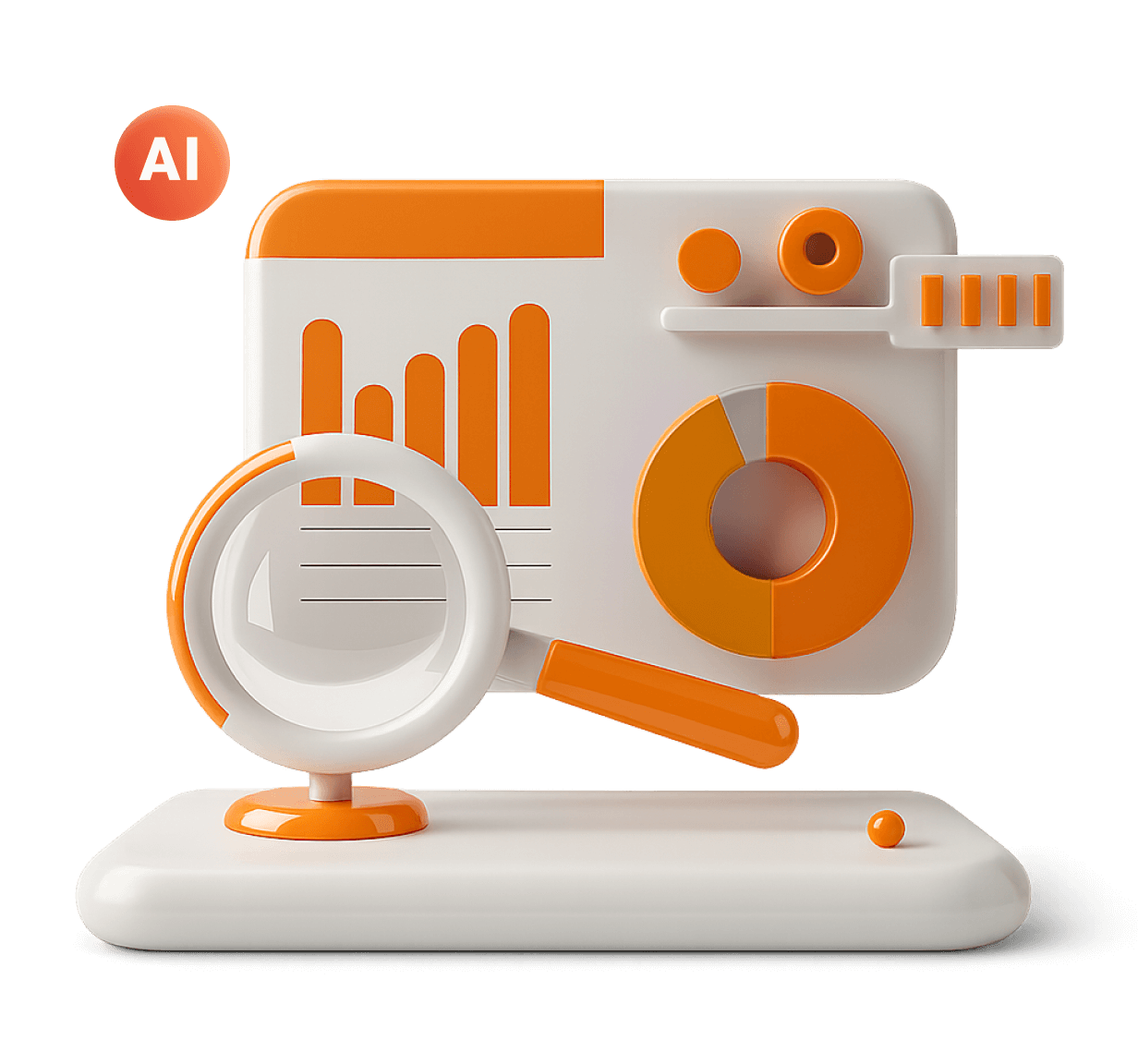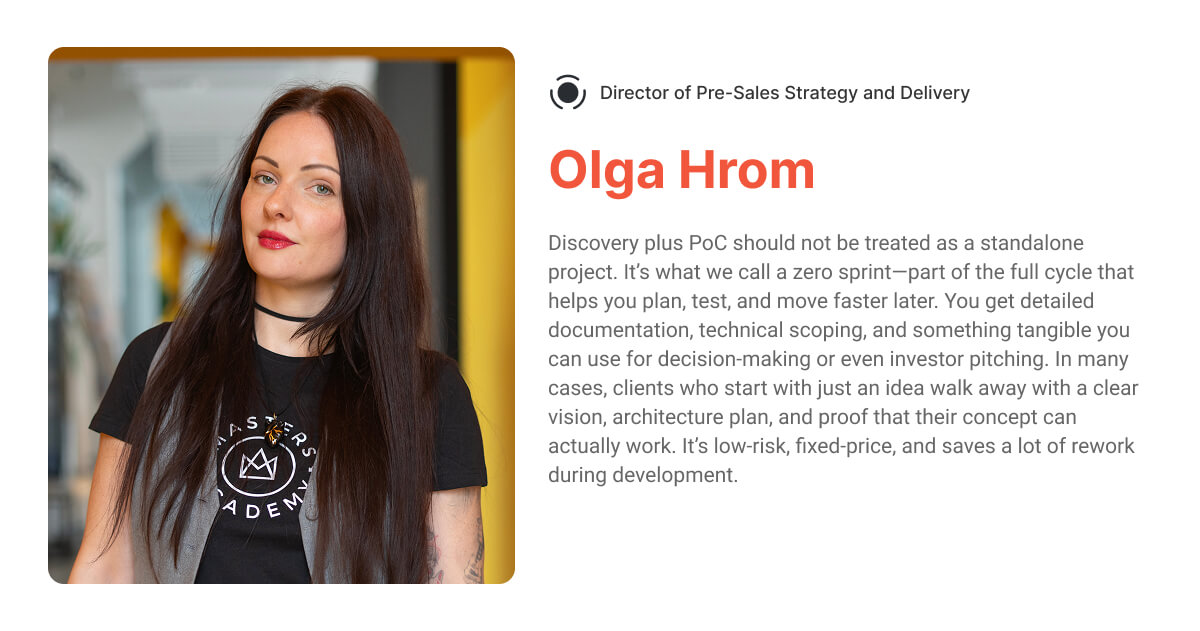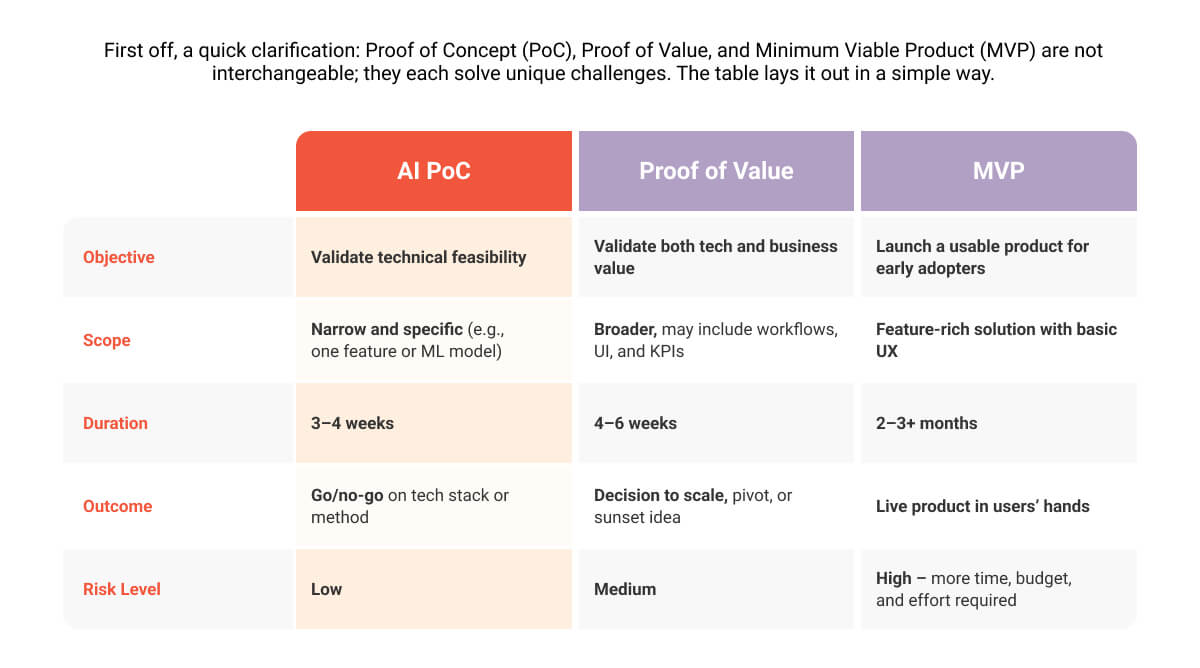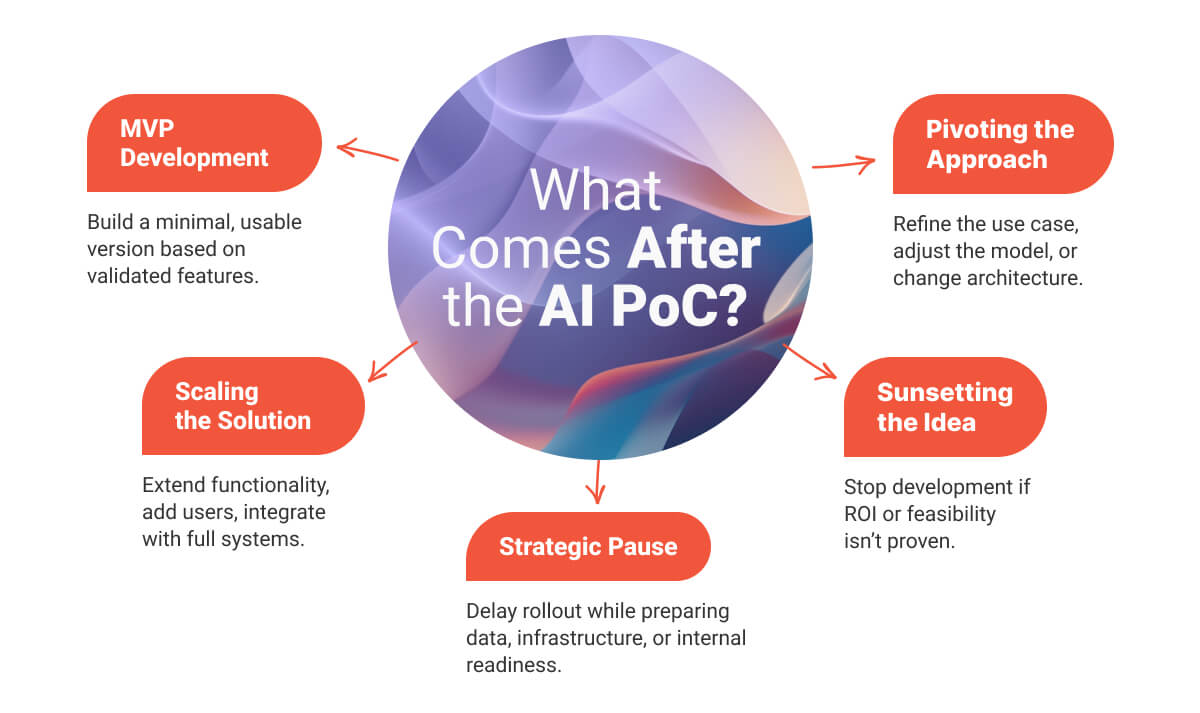
Planning an AI PoC? Here’s What Our Pre-Sales Director Says You’re Missing
Let’s say your company wants to build a machine learning solution or launch a Generative AI assistant, but you’ve never ...
 Get in touch
Get in touch

Too many unknowns to go all-in on artificial intelligence? Our combined Discovery and AI PoC development services help you validate complex use cases, test infrastructure readiness, and align your team before committing to a costly build. Smart, structured, and low-risk from day one.

of our PoC engagements convert into full-scale delivery
average development cost savings when starting with a PoC
AI PoCs successfully delivered across industries


During Discovery, we work closely with your team to spot the pain points where AI can make a measurable difference. That could mean reducing manual data entry, shortening resolution time, or improving personalization in client-facing apps. We employ structured workshops and a “5 Whys” approach to dig past surface-level ideas and find what’s actually worth testing.
Choosing the wrong model or platform early on can cost weeks of work and thousands in rework. Our experts help you avoid that. Based on your data, goals, and technical environment, we recommend the most suitable models, frameworks, and architecture. You’ll know exactly what’s required to build a solution that performs well, scales smoothly, and fits your industry.
Master of Code Global ensures your PoC is directly tied to your company’s strategy. That means defining success metrics from day one, understanding what matters most to your leadership, and validating whether the solution supports real goals, such as increasing retention, decreasing ticket volume, or boosting lead conversion.
AI proof of concept development services are about results agreed upon upfront. That might include cost per action, CSAT, churn reduction, or task automation rates. The PoC is designed to hit those benchmarks. This lets you prove internal value, pitch confidently to investors, or move forward with data-backed certainty, not ROI assumptions.
Artificial intelligence introduces new risks, and not all teams are ready for them. That’s why safety is part of our AI consulting services from day one. We assess your infrastructure, data policies, and compliance needs, and advise on how to embed guardrails into your stack. Think of us as a privacy and AI security net, checking every box before you go further.
First things first – we sit down with you to understand what you’re aiming for, your challenges, and desired outcomes. Together, we define relevant use cases and what success means. This phase also allows aligning stakeholders early for smooth decision-making later.
The next step? Reviewing your data together – what you’ve got, how it’s structured, and how it fits with your tools. We identify what can be reused and what needs to be reworked. This stage also surfaces blockers like missing APIs, compliance gaps, or poor information quality.
After mapping out the current setup, our specialists propose the right models, stack, and delivery path. You receive documentation with architecture suggestions, a timeline, resource estimates, and a realistic rollout plan. All decisions are grounded in feasibility, not assumptions.
Next up is developing a focused AI PoC to validate the chosen solution. You’ll get progress checkpoints, quick iterations, and a final demo to assess how the concept can perform in your environment. This step helps confirm viability and reveal roadblocks before you invest further.
At the end of the engagement, you’ll have a tested concept, clear architectural direction, and business metrics to evaluate ROI. You can move forward with confidence, or course-correct early without wasting budget. Either way, the outcome is clarity.


Let’s say your company wants to build a machine learning solution or launch a Generative AI assistant, but you’ve never ...

Forget robots taking over the world. The real AI revolution is happening right now, in the subtle shifts that are ...

Artificial intelligence ambitions are high, but most businesses are still stuck in pilot mode. In fact, 80% of companies are ...